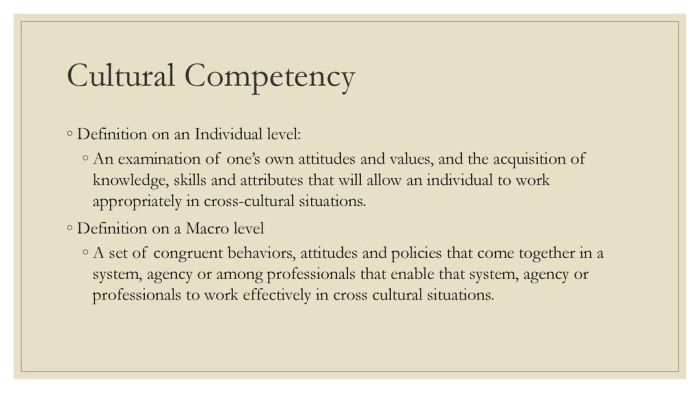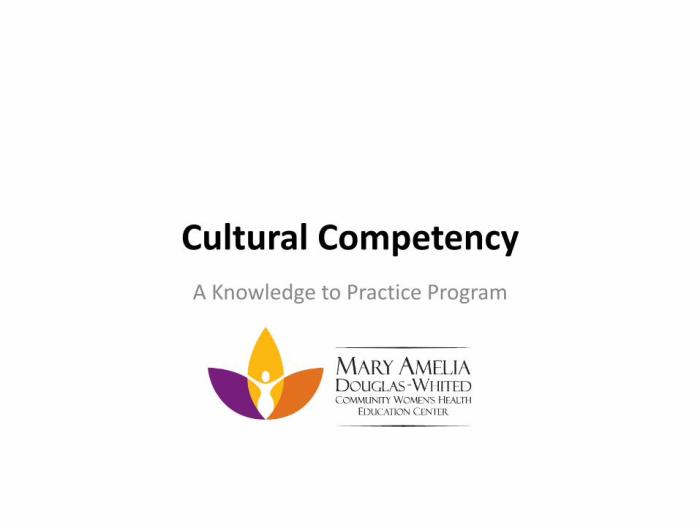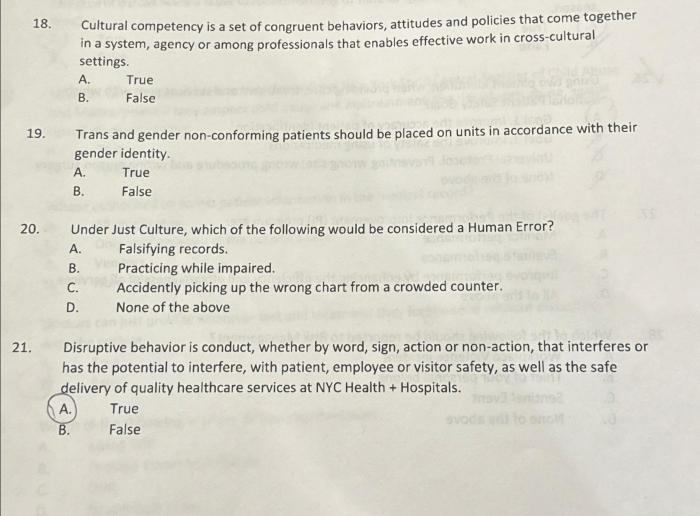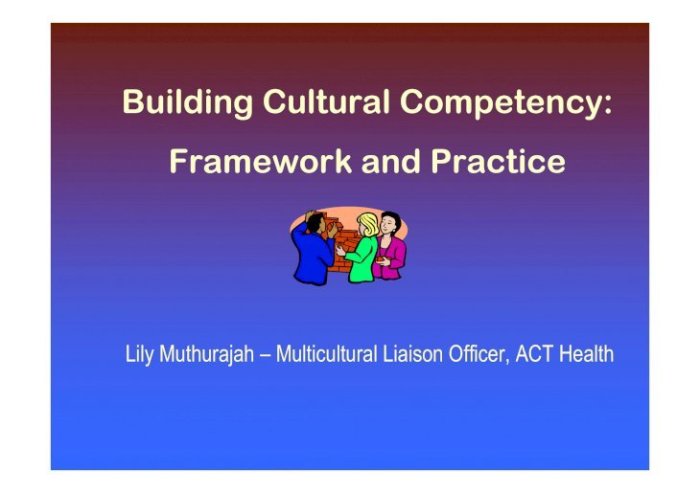Cultural and linguistic competency is a set of congruent behaviors that enables individuals and organizations to effectively interact with and provide services to diverse cultural and linguistic populations. It involves understanding and respecting diverse cultures and languages, and demonstrating behaviors that reflect that understanding and respect.
Cultural and linguistic competency is essential for effective communication, relationship building, and service provision in a globalized world. It benefits individuals and organizations by fostering inclusivity, reducing misunderstandings, and improving outcomes.
Cultural and Linguistic Competency Definition

Cultural and linguistic competency refers to the ability of individuals and organizations to understand, respect, and effectively interact with people from diverse cultural and linguistic backgrounds. It involves acknowledging and respecting the values, beliefs, and practices of different cultures, as well as being able to communicate effectively in multiple languages.
Cultural and linguistic competency is essential in a globalized world where people from diverse backgrounds interact and collaborate on a regular basis. It fosters understanding, reduces misunderstandings, and promotes effective communication, leading to improved outcomes in various settings such as healthcare, education, and business.
Components of Cultural and Linguistic Competency

Cultural and linguistic competency encompasses several key components, including:
- Cultural awareness:Understanding and respecting different cultural values, beliefs, and practices.
- Cultural sensitivity:Being mindful of and responsive to cultural differences in interactions.
- Cultural knowledge:Possessing specific knowledge about specific cultures, their history, customs, and communication styles.
- Linguistic proficiency:Being able to communicate effectively in multiple languages, both verbally and nonverbally.
- Cross-cultural communication skills:Effectively conveying messages and understanding others from different cultural backgrounds.
- Intercultural empathy:The ability to understand and relate to the perspectives and experiences of people from different cultures.
Benefits of Cultural and Linguistic Competency: Cultural And Linguistic Competency Is A Set Of Congruent Behaviors

Cultural and linguistic competency offers numerous benefits for individuals and organizations, including:
- Improved communication:Effective communication across cultural and linguistic barriers.
- Enhanced understanding:A deeper understanding of different cultures and their perspectives.
- Increased trust:Building trust and rapport with people from diverse backgrounds.
- Improved outcomes:Better outcomes in healthcare, education, and business by addressing the specific needs of diverse populations.
- Reduced bias:Mitigating unconscious bias and promoting fairness and equity.
- Increased innovation:Encouraging diverse perspectives and fostering creativity.
Helpful Answers
What is cultural and linguistic competency?
Cultural and linguistic competency is the ability to effectively interact with and provide services to diverse cultural and linguistic populations by understanding and respecting their cultural values, beliefs, and communication styles.
Why is cultural and linguistic competency important?
Cultural and linguistic competency is important because it enables effective communication, relationship building, and service provision in a diverse world. It fosters inclusivity, reduces misunderstandings, and improves outcomes.
How can I develop cultural and linguistic competency?
You can develop cultural and linguistic competency through ongoing learning, reflection, and practice. This includes reading books and articles, attending workshops and trainings, and interacting with people from diverse backgrounds.
